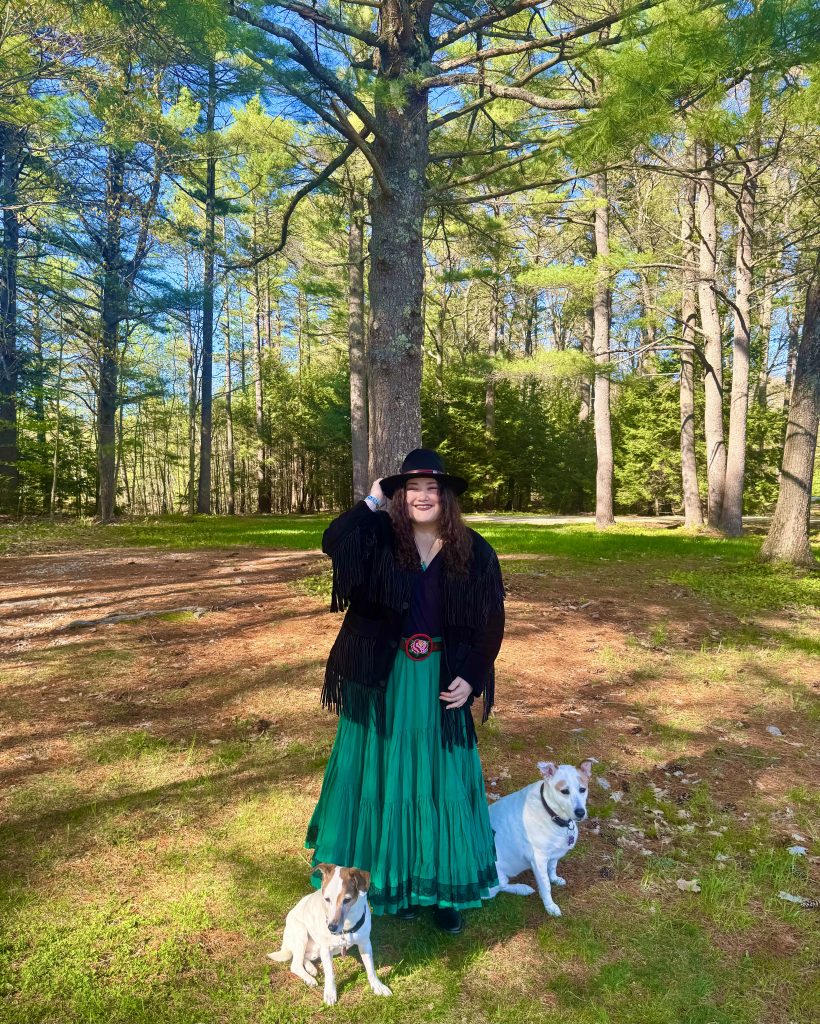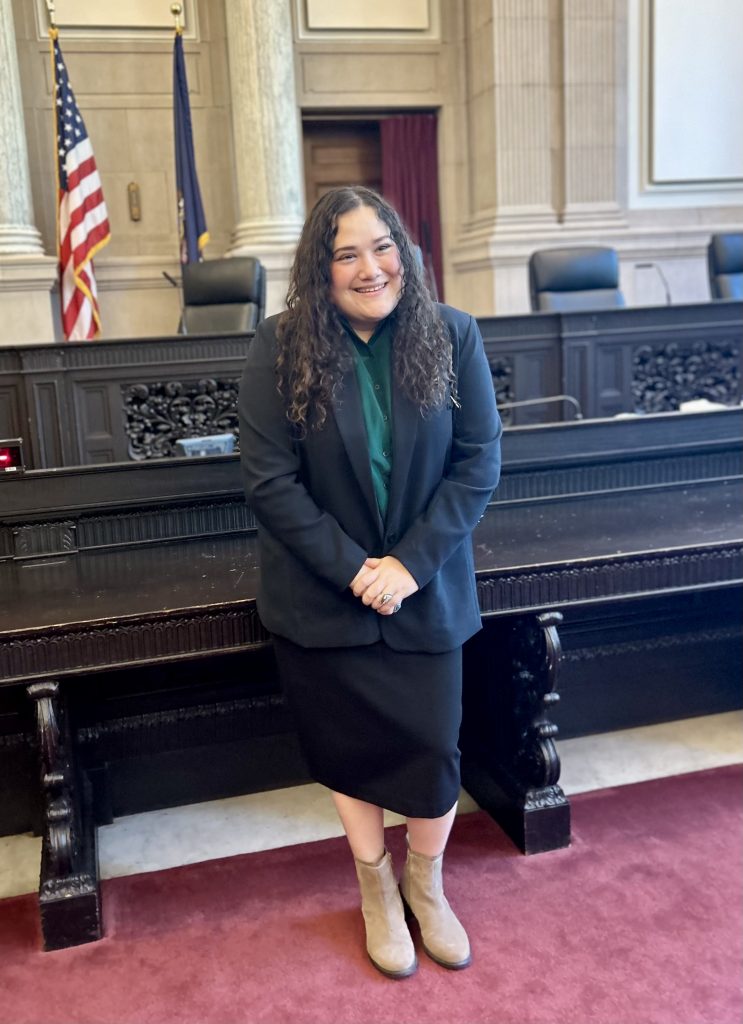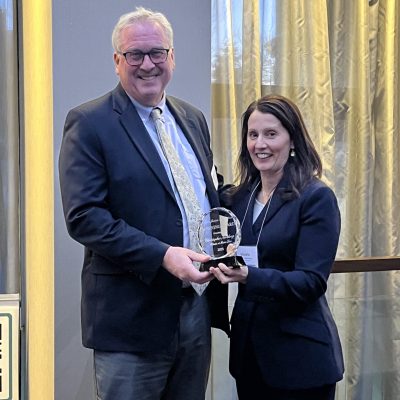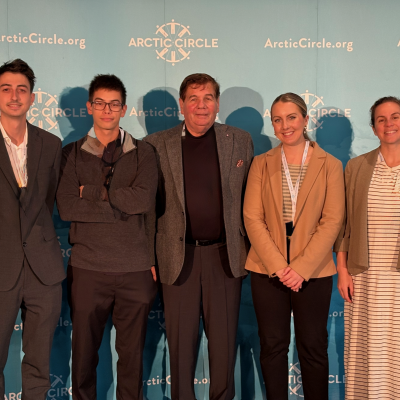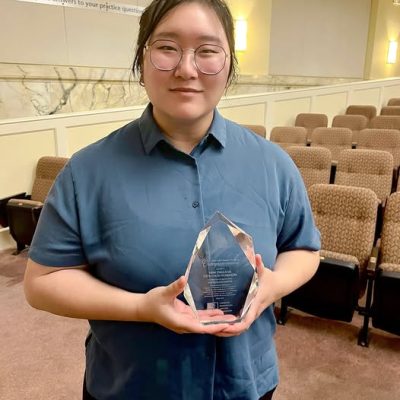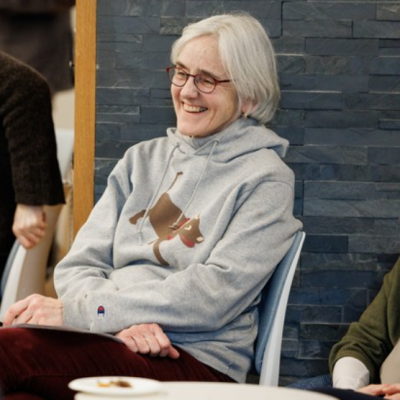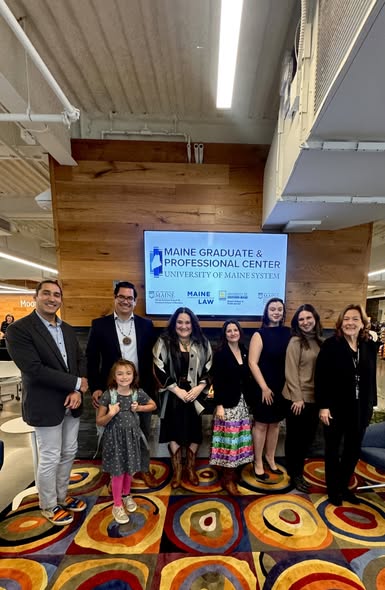Intentional burns have a long history among Native communities. Also known as prescribed burns, setting controlled fires to certain forested, prairie, or agriculture landscapes is a way to regenerate environments, re-shaping and preserving them for decades and generations to come.
Graduating 3L Holly Fain often thinks about her nascent legal career as analogous to this time-honored tradition – she wants to reshape and rethink systems that aren’t serving individuals and communities. She understands better than many that sometimes this means completely restoring a system in order to enhance its function and safeguard those it’s meant to support.
While Fain’s native heritage – a Descendant of the Shoshone People and Mexican-American Texan – plays a role in how she thinks about her career and her place in society. Her professional experience before law school also influences how she thinks about legal systems, specifically educational, Indigenous, environmental justice and their intersections.
Fain came to law school after a successful career in Texas as a curriculum coordinator for a public school district. Her focus was on project-based learning implementation within at-risk school communities, which meant moving away from standardized test teaching to improve student outcomes in the immediate and the long-term. While the work was challenging, it was also rewarding, Fain said, because she could see the applied changes working and it gave her faith that other systems elsewhere could be reformed too.
“My flame was burning a bit low in public school reform, so law school was an exciting break to rekindle my goals for community impact,” Fain said. “A chance to reset and refocus. I found myself gravitating towards issues of youth and environmental justice, which braid together my commitment to issues of community development, tribal sovereignty and educational reform.”
Fain was a founding member of the Native American Law Students Association, serving as Maine Law’s co-chair with another Native colleague. She took advantage of Maine Law’s robust experiential learning opportunities, working as a Education Law and Policy Intern for Family Equality, a Penobscot National Legal Intern for the Penobscot Nation Judicial System, and, most recently, training as a Qualified Expert Witness for Indian Child Welfare Act (ICWA) testimonies.
Fain also served as a Student Attorney for the Clinics at Maine Law in the Youth Justice Clinic. In this role, she was able to plan outreach projects, advocate for emerging adult clients facing criminal charges and for their educational rights, as well as litigate a contested hearing involving a protection order against a young client with disabilities.
“When you look at my law school career I didn’t take one defined track, I did a little bit of everything I felt passionate about,” Fain said. “But I think that’s because I am passionate about a lot of things and I can also see how all these disparate areas are connected.”
And as passionate as she is about school and her future legal career, Fain is similarly fired up about her law school community and peers. She could be found at most Maine Law events, if not as an organizer then as an avid participant, often contributing through musical performance, comedy, or cooking. Perhaps it is this commitment and vivacity that led the Class of 2025 to select Fain as their student speaker at Graduation on May 24, 2025.
“I am humbled and honored for the opportunity,” Fain reflected. “My heart is with our class because we have brought so much soul to Maine Law and service to the State of Maine through our public interest work and passion. I am excited to celebrate us all at our graduation.”

